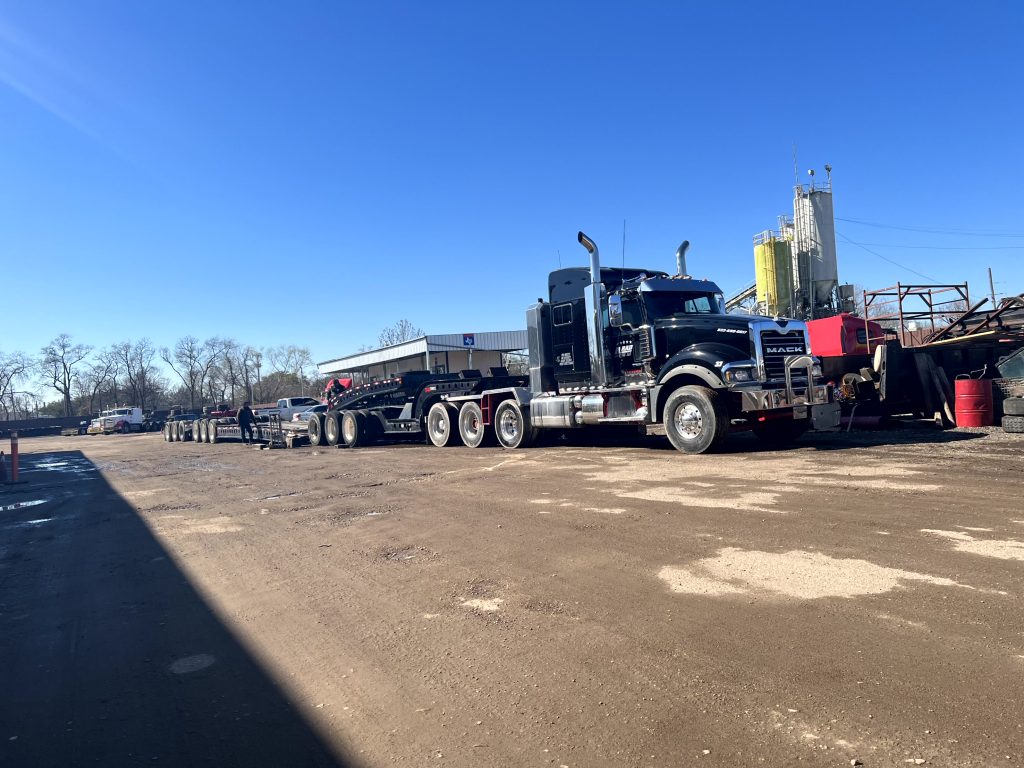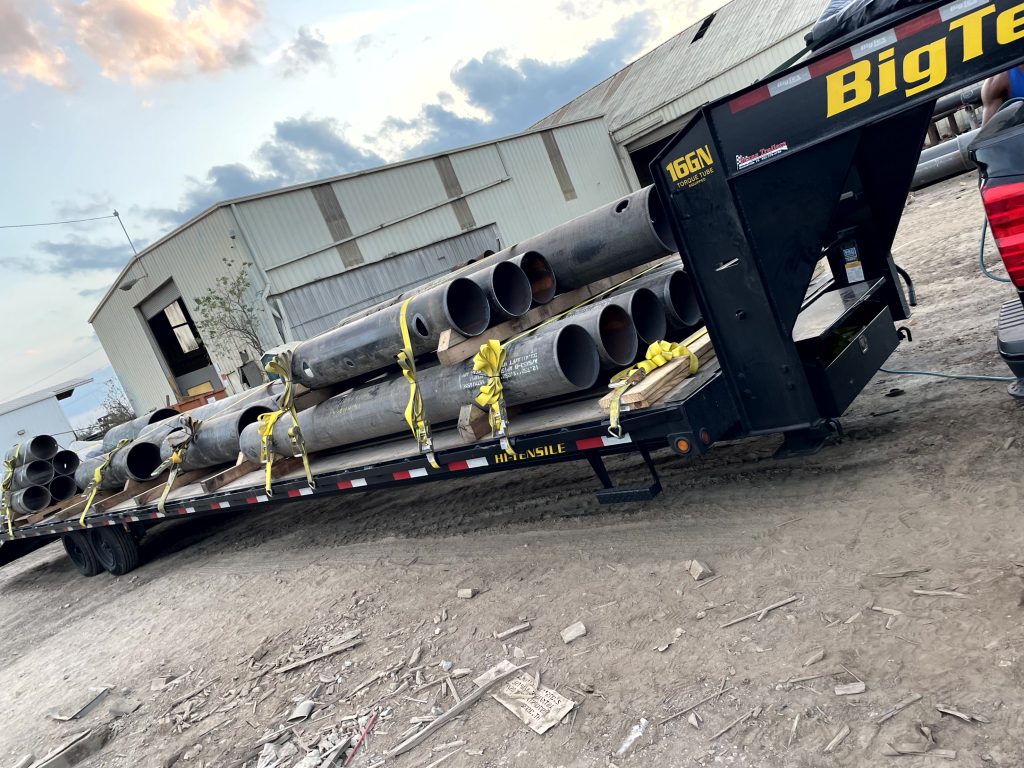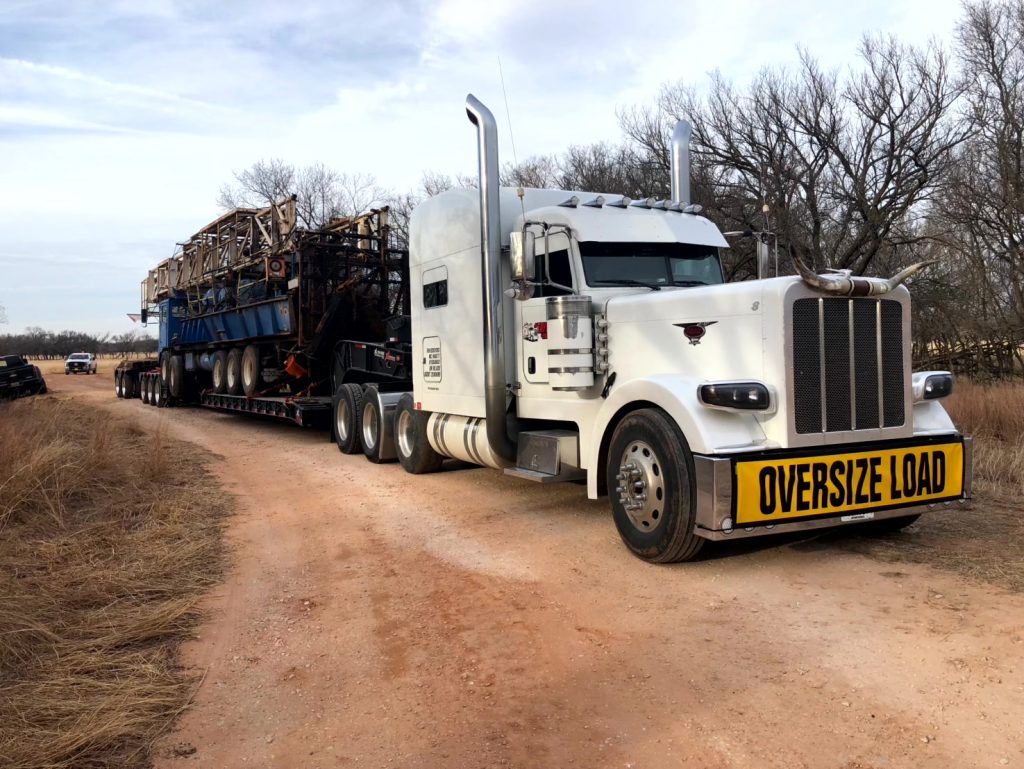What Is Power Only Trucking?
Freedom Heavy Haul can offer expedited Pickup and Delivery for any size shipment anywhere in the USA. Contact us today for No Hassle, No Pressure Pricing.
The transportation and logistics industry is a dynamic and evolving sector, and Power Only Trucking is a pivotal component of this landscape. Power Only Trucking refers to a freight transport service where carriers provide only the tractor and the driver, while the trailer is supplied by the shipper.

In this article, you will learn what is power only trucking, its utilization, advantages and disadvantages.
So What Is Power Only Trucking?
Power Only Trucking has carved a niche in the logistics industry, offering unique solutions to common freight challenges. It’s an arrangement where the transport company leverages its tractors and drivers but utilizes trailers owned by the client or a third party. This symbiosis allows for more versatile and often cost-effective shipping solutions.
Definition and Overview
In Power Only Trucking, a transportation provider is engaged to move a trailer loaded with goods. The service provider supplies the power unit (the truck) and the driver, but not the trailer. This mode is particularly advantageous in scenarios where shippers have invested in their own fleet of trailers or when there’s a need to move leased or rented trailers.
Power Only Trucking in the Transportation Industry
This service is a crucial part of the supply chain, especially in sectors where companies own or lease a significant number of trailers. Power Only Trucking is widely used in retail, manufacturing, and other industries where bulk goods are transported regularly, offering a flexible and efficient means of moving these goods.
Historical Evolution of Power Only Trucking
The concept of Power Only Trucking has been around for decades but has gained significant traction in recent years due to advancements in logistics and the growing complexity of supply chains. The need for more adaptable and cost-effective transport solutions has propelled this service to the forefront of shipping strategies.
Power Only Trucking vs. Regular Truckload Carriers
Understanding the differences between Power Only Trucking and regular truckload carriers is key to comprehending the logistics landscape. While both services involve the transportation of goods over the road, the methodologies and applications differ significantly.

Key Differences Explained
The primary difference lies in the ownership of the trailer. In regular truckload transport, the carrier provides both the tractor and the trailer. In contrast, Power Only Trucking requires the carrier to supply only the tractor, with the trailer being provided by the shipper. This fundamental difference impacts the operational model, cost structure, and flexibility of the transport service.
Comparison with Regular Truckloads
Compared to traditional truckload shipping, Power Only offers greater flexibility. Shippers with seasonal fluctuations or irregular shipping schedules find Power Only Trucking particularly beneficial. It allows for more efficient utilization of owned or leased trailers and can be more cost-effective, especially for companies with a large number of trailers.
Impact on Shipping and Logistics
Power Only Trucking significantly impacts how companies approach their logistics and supply chain strategies. It offers a solution for companies to optimize trailer usage and reduce costs associated with empty miles (trucks traveling empty). This service also provides an opportunity for companies to manage peak season demands more effectively.
The Mechanics of Power Only Trucking
The operational side of Power Only Trucking involves several key components, from the types of trailers used to the specific logistics of coordinating these transports.
How Power Only Works in Trucking
Power Only operations start with a shipper requesting a carrier to haul a loaded or empty trailer. The carrier then provides a tractor and a qualified driver to transport the trailer to its destination. This process requires careful coordination, especially in matching the right kind of tractor with the specific trailer and load requirements.
Types of Trailers Used in Power Only Trucking
Diverse types of trailers can be used in Power Only Trucking, including dry vans, refrigerated (reefer) trailers, flatbeds, and specialized equipment like double or triple trailers. The versatility in trailer types underlines the flexibility of this transport mode, catering to a wide range of cargo needs.
Operational Considerations and Challenges
While Power Only Trucking offers several advantages, it also comes with its own set of operational challenges. These include the need for precise scheduling to ensure trailer and tractor availability, the requirement for specialized drivers for different types of trailers, and the logistical complexity of coordinating multiple shipments.
Utilization of Power Only Trucking by Shippers
Shippers across various industries utilize Power Only Trucking for its flexibility and cost-effectiveness. This mode of transport is especially beneficial for companies that have a significant investment in their own trailer fleet or those that require specialized shipping solutions.
Common Ways Shippers Use Power Only Solutions
Shippers use Power Only Trucking in several scenarios, such as for moving trailers between warehouses, delivering goods to customers, or repositioning empty trailers. It’s also a popular choice for transporting goods during peak seasons or for one-off shipments that require specialized handling.
Power Only + Trailer Leasing
Many companies combine Power Only Trucking with trailer leasing programs. This combination allows them to expand their shipping capacity without the heavy investment of owning a fleet of trailers. It also provides the flexibility to scale up or down based on shipping demands.
Power Only and Private Fleet Integration
Companies with private fleets often integrate Power Only services to enhance their shipping capabilities. This integration can help manage overflow during peak times or cover for fleet maintenance periods, ensuring continuous operation without disruptions.
Case Studies: Successful Power Only Operations
Real-world examples of successful Power Only operations can be found in various sectors. Retail giants, for instance, leverage Power Only Trucking to ensure timely delivery of goods during holiday seasons, while manufacturers use it for efficient transport of raw materials and finished products.
Advantages and Disadvantages of Power Only Trucking
Like any transport mode, Power Only Trucking has its set of advantages and disadvantages, each influencing a shipper’s decision to use this service.

Pros: Efficiency, Cost-Effectiveness, Flexibility
The major advantages of Power Only Trucking include operational efficiency, as it allows for better use of trailers and reduces idle time. It’s also cost-effective, as shippers don’t have to invest in tractors. Furthermore, the flexibility it offers in handling varying shipment sizes and types is unparalleled.
Cons: Maintenance Challenges, Limited Control, Availability Issues
On the flip side, shippers face challenges such as the need for ongoing maintenance and servicing of their trailers. There’s also limited control over the scheduling and availability of power units, and in some cases, Power Only can be more expensive, particularly for short-notice needs.
Comparative Analysis with Other Shipping Modes
When compared with other shipping modes, Power Only Trucking stands out for its flexibility and efficiency. However, it requires more coordination and management compared to full-service truckload shipping, where the carrier manages both the tractor and the trailer.
Power Only Trucking Terms to Know
Understanding the terminology used in Power Only Trucking is essential for anyone involved in the logistics and transportation sector. Terms like ‘deadhead miles’, ‘drop-and-hook’, and ‘trailer interchange agreement’ are commonly used and crucial for effective communication in this field.
Industry Terminology and Jargon
Familiarity with specific jargon such as ‘bobtail’, referring to a tractor operating without a trailer, or ‘reefer’, a term for refrigerated trailers, is important. These terms help in precise communication and understanding of operational requirements.
Regulatory and Compliance Terms
Compliance with transportation regulations is a critical aspect of Power Only Trucking. Terms related to weight limits, safety standards, and environmental regulations are part of the everyday vocabulary in this sector.
Using a 3PL for Power Only Trucking
Third-Party Logistics (3PL) providers play a significant role in Power Only Trucking. They offer expertise, network, and resources that can enhance the efficiency and effectiveness of Power Only operations.
Why Shippers Use 3PLs for Power Only
Shippers often turn to 3PLs for their extensive carrier networks and ability to manage complex logistics requirements. 3PLs can provide scalable solutions, handle seasonal fluctuations, and offer cost benefits through their consolidated operations.
How 3PLs Enhance Power Only Operations
3PLs bring value to Power Only Trucking by offering advanced technology for tracking and managing shipments, expertise in regulatory compliance, and the ability to quickly adapt to changing market conditions.
Selection Criteria for 3PL Providers
When choosing a 3PL provider for Power Only services, shippers should consider factors like the provider’s network size, technology capabilities, experience in the specific industry, and their track record in managing Power Only operations.







